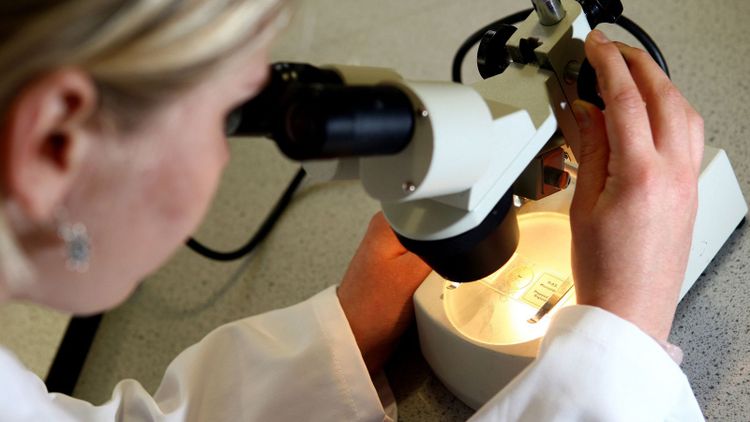Spit test for prostate cancer could save thousands of lives, researchers say

Research indicates that a basic spit test can be utilized at home to detect the likelihood of men developing prostate cancer and thereby rescue countless lives.
During the ASCO conference held in Chicago, initial results were revealed stating that a new test may be more precise in detecting the disease in its early stages compared to the traditional blood test. The new test has the potential to make a significant impact as around 12,000 people lose their lives to this illness in the UK each year.
According to the researchers at the Institute of Cancer Research, London, and the Royal Marsden NHS Foundation Trust, the findings of the study have the potential to change the course of prostate cancer diagnosis. They believe that the new screening technique could provide an inexpensive and user-friendly option to detect the disease. The success of this research could be a turning point in prostate cancer treatment.
Furthermore, they asserted that it could also prevent a large number of individuals who have a lower probability of developing a certain condition from receiving unwarranted and intrusive medical procedures.
The experiment was carried out on a group of 6,142 males between the ages of 55 and 69 who were selected from their general practitioner's offices. They were deemed to be at an age where the likelihood of developing prostate cancer is heightened.
The scientists computed their polygenic risk rating that relied on 130 diverse genetic alterations discovered within the DNA sequence associated with prostate cancer.
Individuals who exhibited the most noteworthy danger levels, comprising of 588 males who possessed numerous versions of these genes, were requested to undergo additional examination.
The group identified that the spit test produced less inaccurate positive outcomes and unearthed a greater percentage of severe cancers compared to the typical blood test that examines the amount of prostate-specific antigen (PSA) protein.
Following an MRI examination and a biopsy procedure, it was discovered that a significant 40% of males who had elevated scores from the saliva analysis were detected with prostate cancer.
According to the researchers, men with elevated PSA levels show that only a quarter of them may have prostate cancer when tested.
The reason for this is that the exam lacks precision and might mistakenly show signs of cancer in males for 75% of the cases. Additionally, it may overlook cancers that demand prompt medical attention while identifying those that do not pose a significant risk to one's life.
Check out: Cases of prostate cancer are expected to double by 2040. A unique and individualized cancer vaccine is considered a significant breakthrough in cancer treatment.
Thanks to this research, two members of my family have been spared.
A male participant, aged 71, received a diagnosis of prostate cancer during the trial process three years ago.
Dheeresh, hailing from the beautiful town of Brighton, had a surgical procedure to get rid of a portion of his prostate. Thankfully, he is recovering splendidly.
He expressed complete surprise upon receiving his diagnosis since he had no indications of any medical condition. He believes he wouldn't have been diagnosed yet if he didn't participate in the trial.
I found out through a saliva test that I had a higher likelihood of getting the disease. Since my younger sibling was too young to participate in the study, he decided to sign up and was informed that he had an aggressive form of prostate cancer.
It's amazing to consider that as a result of this research, two individuals in my family have been rescued.
According to ICR's CEO, Kristian Helin, detecting cancer at an early stage increases the chances of curing it. As the number of prostate cancer cases is expected to increase twofold by 2040, it is essential to establish a system for early diagnosis.
It is common knowledge that the present PSA test can lead to men undergoing treatments they do not require, and what's more concerning, there are cases where men with cancer are not detected. What we need is a better screening test for this disease without delay.











































